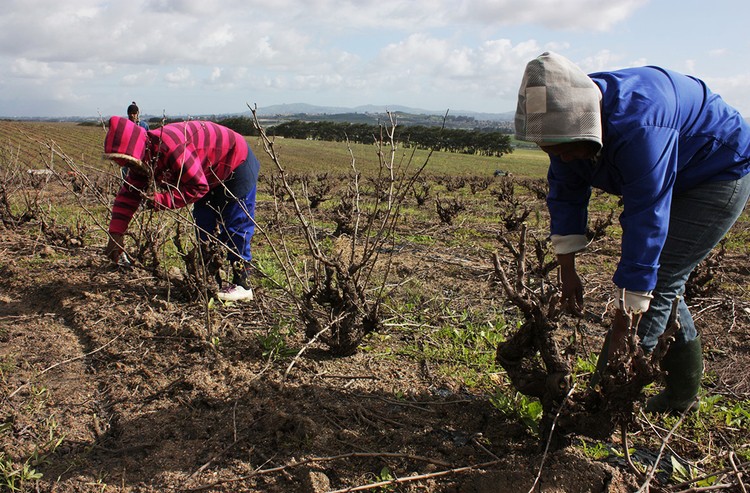
29 August 2024
Farm workers and their children are exposed to pesticides that have been banned in Europe. These pesticides remain in the environment, and studies have found them all year round in three river catchments in the Western Cape. Archive photo: Steve Kretzmann
All hazardous pesticides that have been banned in their countries of origin should also be banned in South Africa, a United Nations expert has recommended.
Marcos Orellana, who is “UN Special Rapporteur on the implications for human rights of the environmentally sound management and disposal of hazardous substances and wastes”, visited South Africa in the second half of 2023. His report, published in July this year, will be submitted to the UN Human Rights Council in September-October.
Orellana said evidence had linked exposure to pesticides to serious effects on the skin, eyes, liver and kidneys, as well as the cardiovascular, endocrine and nervous systems and children and women were especially vulnerable.
In the Western Cape, he said, he had heard from women farm workers who reported being asked to work in the vineyards immediately after pesticides had been sprayed, without being provided with personal protective equipment and while a thick layer of pesticides still covered the grapes.
He said pesticides entered rivers. Quoting a 2020 study, which found very high levels of five pesticides in the Krom River, Berg River and Hex River watersheds in the Western Cape, he said: “Those five pesticides, among others, are banned in the European Union. However, some of them are still produced in European countries for export, particularly to developing countries, a practice that reproduces long-standing racist and colonial patterns of exploitation.”
On Tuesday more than 150 farm workers from the Women on Farms Project marched on the German Consulate-General to demand an end to the export to South Africa of pesticides which are banned in Germany.
Orellana welcomed plans by the Department of Agriculture, Land Reform and Rural Development to ban certain pesticides. But all hazardous pesticides that have been banned in their countries of origin “should also be banned in South Africa,” he said.
Orellana also welcomed improvements to the Fertilizers, Farm Seeds, Seeds and Remedies Act. But, he said, better public participation and mechanisms to trace pesticides were necessary.
He expressed concerns about “corporate capture” and “confidential business information” about pesticides. At the time of the visit, a list of registered pesticides in South Africa could only be accessed through CropLife South Africa, an association representing agrochemical companies, for a fee.
Apart from banning pesticides which are already banned in the countries where they are manufactured, he also recommended that the government